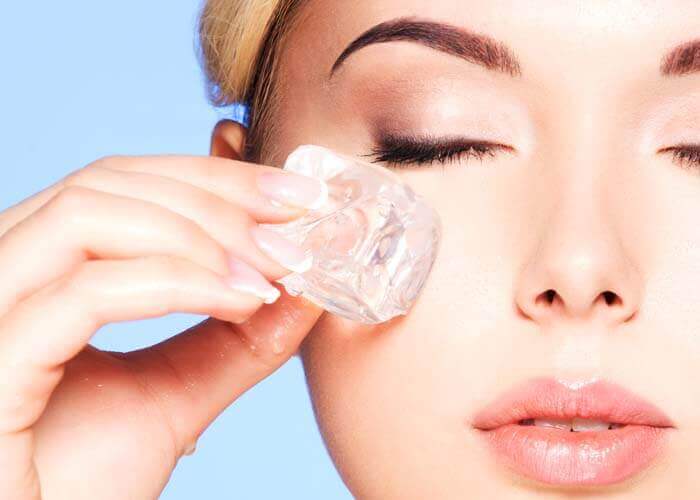How To Get Glowing Skin
Many people want to have glowing skin. Radiant skin can be a sign of good health for some people, but it is also a cosmetic goal for others.
You can improve your skin’s radiance in many ways. Diet and lifestyle modifications can help improve skin health. Many skin care products and makeup can also give the appearance that your skin is glowing.
What is glowing skin?
Glowing skin can mean different things to different people. Glowing skin is often used to describe healthy, “awake” looking skin, rather than dull, dry or unevenly texture. Healthy skin can have a natural glow or sheen.
Most people can achieve healthy skin. Healthy skin looks like:
- Smooth, without breaks or blemishes
- Being adequately hydrated means not being too dry or too oily
- The color should be fairly uniform, not red or inflamed.
Note that healthy skin is not the same as perfect skin. It is impossible to achieve perfect skin. Healthy and glowing skin can also have normal characteristics such as:
- Visible pores
- Fine lines and wrinkles
- Birthmarks
- Blemishes can occur on occasion
Factors affecting skin health
Every person’s skin differs. Some people are more likely to have a glowing complexion than others, depending on a variety of factors.
Skin health is affected by:
- Genetics: A person’s genes may make them more likely to suffer from dry skin or dullness. is related to genetics in some dry skin conditions such as atopic dermatitis.
- Hormones: Fluctuations of hormone levels can cause acne breakouts and alter the oiliness or dryness of a person’s face. It is true of both sexes. This is especially true during puberty and pregnancy.
- Medical conditions and medications: The health of a person’s skin can be affected by other health conditions or medications. Hormonal birth control, for example, can either have a positive or a negative impact.
- Environmental: Sunlight, extreme temperatures and dry air can have an adverse impact to the skin.
- Behavior: Water consumption, diet, rest, stress and exercise may affect the skin. Skin care products can either improve or harm skin health.
There are many factors that a person can control to maintain healthy skin. In the next section, we will examine some of them.
Skin Care for Glowing Skin
Skin care products are often used by people to achieve healthy skin. It can be confusing to choose the right product, since there are so many companies that promise glowing skin.
Academy of American Dermatology says that skin care doesn’t have to be complicated or expensive. A simple skin care routine consisting of cleansing, moisturizing and sun protection is beneficial to many people.
Cleaning
Cleaning products remove excess oil, dirt, and makeup from the skin. It is important to choose a cleanser that is pH-balanced and gentle.
After sweating, cleanse the skin when you wake up, before sleeping, and just before bedtime. Warm water is better than hot or cold, and you should pat dry the skin with a clean cloth.
Moisturizing
Moisturizers are a way to add moisture to your skin. The AAD recommends that you apply moisturizer immediately following cleansing to help trap moisture in your skin.
Oily skin types may prefer a moisturizer that is oil-free, while dry skin types may prefer a heavier product with oils or butters.
Sun protection
The sun’s UV light can cause skin damage, visible signs of ageing, and even burns. It is easy to reduce risk by applying an SPF product prior to going outside. Look for an SPF that:
- Broad spectrum
- SPF 30 and above
- The skin type of a person can be a factor in determining the best product for them.
Apply sunscreen to any exposed areas, including the neck and eyes. Wear lightweight clothing or a hat that covers the scalp when the sun is strongest.
Other Products
Additional products may be helpful in achieving healthy skin depending on the individual’s concerns. Chemical exfoliants, for example, are products that dissolve skin’s top layer, allowing new cells to grow underneath. These products can be used to improve the texture and appearance of skin.
After cleansing, but before moisturizing, apply chemical exfoliants.
Exfoliants with chemicals are not suitable for all skin types. Also, they can increase skin’s sensitivity. Wear SPF whenever you use a chemical peel.
Shaving
Hair removal can cause irritation, ingrowing or shaving rash. Avoid this by:
- Wet skin and hair
- Use a cream or balm to lubricate your skin.
- Shave in the direction of hair growth with a sharp, clean razor
- Rinse the razor after every pass
- Allow the razor to completely dry after each use
Foods to glow skin
Healthy eating is good for the whole body, and that includes the skin. Even if someone has a great skin care regimen, their skin may not look healthy if they don’t take care of themselves on the inside.
Avoid foods high in salt, sugar and saturated fat. Focus on:
- Fresh fruits and vegetables
- Whole grains
- lean proteins
- Healthy fats such as avocados, olive oil and nuts
Changes in lifestyle for glowing skin
Simple lifestyle changes can improve skin health and appearance. These include:
Stopping smoking
Smoking may cause a number of skin conditions, including:
- Premature aging can include wrinkles
- Slow wound healing
- Skin infections
- some skin disorders, including psoriasis
The risk of squamous-cell skin cancer is increased by smoking , especially on the lips.
Stress relief
Stress has a variety of effects on the skin. Scientists believe it can increase inflammation, reduce blood flow to skin and delay healing.
Relaxing and reducing stress is good for your body and mind. This can be done by:
- Delegating any activities that they don’t need to perform can reduce stress.
- Making time for hobbies or activities that they find enjoyable or stress-relieving
- Winding down every night before bed
- Yoga, breathing exercises or mindfulness are all forms of meditation.
Sleeping enough is important
Sleeping can be beneficial for your skin and mental health.
In a small study conducted in 2015 by Trusted Source , 60 white women were found to be less satisfied with their skin’s appearance due to a lack sleep. The study may not represent the opinions of people from other races, ethnicities or genders because it did not include them.
Every night, aim for 7-9 Hours of sleep.
Reduce alcohol consumption by drinking water
Water is essential for the body’s health. There is little evidence to suggest that drinking more water improves skin appearance. However, a study from 2015Trusted Source showed that drinking enough water does benefit skin function.
Alcohol can trigger or worsen .
- facial redness
- Flushing
- Rosacea
- psoriasis
- Dermatitis
- Skin infections
Exercising
In a study conducted by in 2015, Trusted Source on sedentary older adults, it was found that aerobic exercise performed regularly for three months improved skin structure. Researchers suggest that regular physical activity may improve skin degeneration caused by age.
Exercise improves your health. Aim for 150 minutes of moderate-intensity activity each week, like brisk walking. You can also aim to do 75 minutes of vigorous aerobic activity per week.
When to consult a doctor
Some people may benefit from the tips above. Dermatologists may be required to treat people with skin conditions such as persistent acne or discoloration.
If you notice any of the following symptoms, it is important to consult a physician immediately.
- Changes to a mole
- Itching, hives or other skin irritations that are persistent or sudden
- Signs of infection on the skin, including pain, swelling or oozing lesions
- Wounds that are slow to heal or have severe wounds
Summary
Healthy and hydrated skin will glow naturally. This can be achieved by slowly implementing a skin-care routine and making necessary changes to your diet or lifestyle.
Avoid smoking, alcohol and UV light as they can damage your skin.




Post Comment